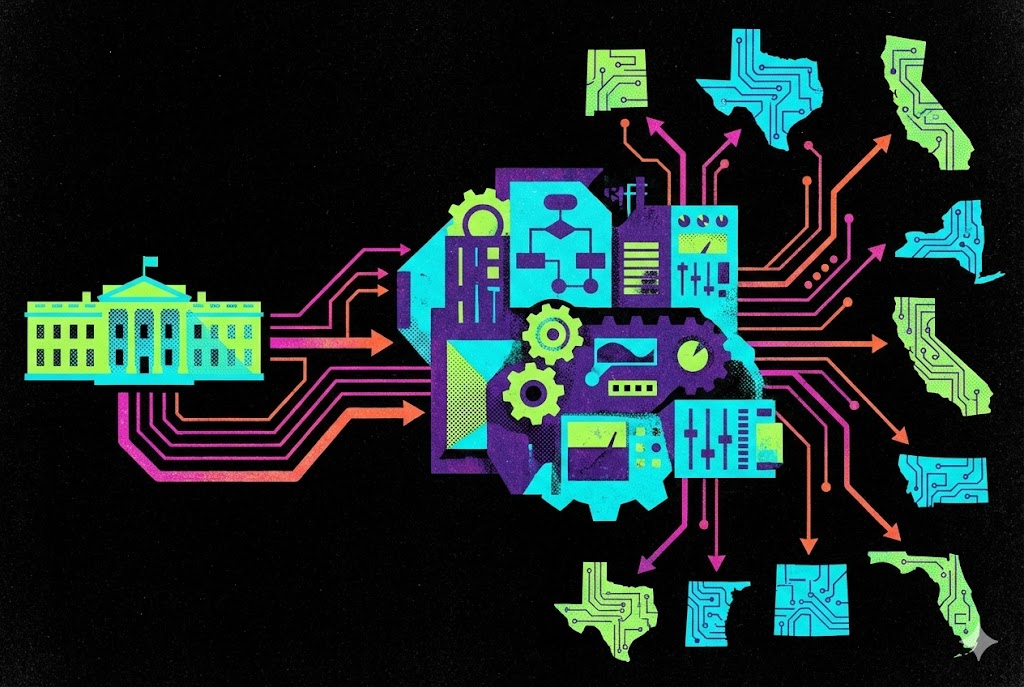The White House has paused a federal order that would have overridden state-level AI regulations
NeutralArtificial Intelligence

- The White House has paused a draft executive order that would have allowed federal law to override state-level regulations concerning artificial intelligence (AI). This decision comes amidst ongoing discussions about the balance of power between federal and state governments in regulating emerging technologies.
- This development is significant as it reflects the Biden administration's approach to AI governance, prioritizing state autonomy in the face of federal intervention. The pause may also indicate a need for further consultation and consideration of the implications of such regulations on innovation and public safety.
- The broader context includes a recent push by former President Donald Trump to draft an executive order aimed at preventing states from enacting their own AI laws, highlighting a contentious debate over the regulation of AI technologies and the extent of federal authority in this rapidly evolving field.
— via World Pulse Now AI Editorial System





